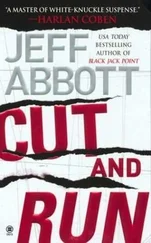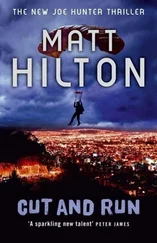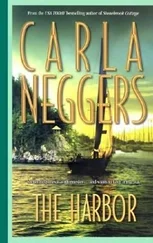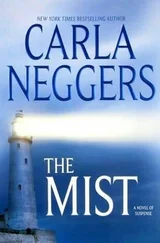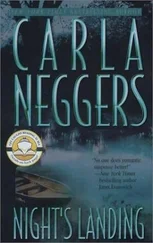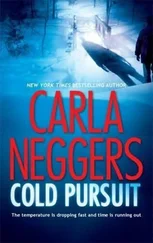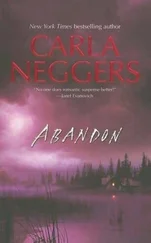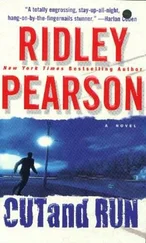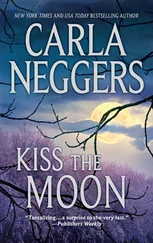In a few minutes, Bloch’s man returned, looking dismayed and frustrated. This time Hendrik did laugh aloud. The man wasn’t necessarily incompetent; he simply didn’t know the kind of woman with whom he was dealing.
As he reached for a cigar, two men darted out of the dark, cold shadows of the park and came up on either side of the Dutchman. They flashed knives. Hendrik grunted, disgusted. Damned New York! He had no patience now for a mugging. Both men looked very fit, older than he’d have expected. Without a doubt, they thought they were fierce.
“Your wallet, old man,” one said.
Hendrik shrugged, thinking he must be getting old. He should have heard them coming, anticipated this. But now he was at a disadvantage, and he wished not to attract attention. His fingers cold and stiff, he removed his wallet from his trousers pocket and handed it to the man who’d made the demand. The second man kept his knife pointed while his comrade inspected the wallet.
“What are you doing?” Hendrik asked, suspicious. “‘Take the thing and go-”
Wait, he thought. If they were ordinary muggers, they would have taken the thing and gone. They would already have disappeared into the park with their booty. There was no need to check for identification.
They wanted to make sure who he was.
Before they obeyed Master Sergeant Phillip Bloch’s orders and killed him.
“Bastard,” Hendrik said without emotion.
“Huh?”
Their puzzled looks quickly changed to surprise, then pain and horror as Hendrik slammed his hand sideways into the throat of the man with his wallet. The second man sliced toward him with his knife, but the Dutchman was ready and dodged, the knife grazing his coat. While the other man choked and sputtered, Hendrik pushed his comrade down, moving fast, with an agility that amazed even him. His opponent had no chance to grab on to him.
He fled, running out into the middle of Central Park West. Cars screeched, horns blared.
Not until he was on the other side of the street in front of the Beresford did Hendrik look back. The two men had scurried away. In front of the museum, Bloch’s other man had disappeared. Hendrik grunted to himself without satisfaction.
Twenty years ago he would have killed them all.
Aunt Willie had found nothing to her liking in her niece’s kitchen and had gone out looking for something to eat. Juliana had taken no offense. Instead, with her aunt gone, she sat at the piano. She didn’t expect to be able to practice. There were too many distractions. Yet she did, with an absorption that had eluded her for months. With her uncle dead, her mother not talking, her aunt outside in the dark, her building being watched, with Matthew Stark and his black-brown eyes and leather coat tugging at her emotions, she began to make progress on the Chopin. The real world hadn’t thrown her off. It had become not something to escape, but something to express.
So simple.
If only Shuji would understand. But he never would. She remembered when she was eleven and she and her parents had gone to his magnificent Upper East Side house, and she’d thought him the handsomest, most incredible man she’d ever seen. She owned all his recordings, would listen to them late into the night, when her parents thought she was asleep. His ability had made her cry with rage and jealousy and amazement at all he could do and all she couldn’t, at least not yet. But when Shuji had taken her alone into his studio, her first words were not to tell him how wonderful he was but to tell him she’d worn white for their introduction because he always wore black.
More than anything else, he’d told her many years later, it was that comment that had prompted him to take her on as his student. He knew he was a strong personality. He had no interest in molding another pianist into a mini-Shuji. He had wanted, encouraged, demanded her development as an independent artist.
Now he couldn’t understand why she needed to color her hair pink and play jazz in a SoHo nightclub. He wanted her to be independent so long as she didn’t break any of his sacred rules.
“The bastard,” she muttered, still playing, “the goddamn bastard. ”
She ignored the tears burning in her eyes and the fatigue gnawing at her muscles and the hollowness inside her, the cold, raw fear that had nothing to do with diamonds and coincidental deaths and men following her.
Shuji was gone. My God, she thought, what am I going to do?
Matthew drank a beer and watched part of a basketball game just to calm down, but neither helped. Weasel, Bloch-where the hell were they? He went for another beer, a Sam Adams, and took two sips as he sat down at the telephone in what passed these days for his study, of which the most notable items were his television and stereo system. His typewriter was covered and had about twelve issues of Sports Illustrated stacked on top of it. The bottom one, he noted, went back eight months. He didn’t own a computer. Working on one at the newsroom was enough. He didn’t like all those goddamn lights blinking at him.
He held the receiver in his hand and told himself not to do it.
He did it anyway. He had the number memorized, had already started to dial it twice this evening.
There were four rings, and then her voice came over the message machine. “I’m unavailable at the moment, but if you leave your name, number, and a brief message…”
“Juliana, if you’re there, pick up the damn phone. If not-”
The machine cut off. “Matthew.” She sounded vague, spaced. “What is it?”
The rigidity of his muscles began to ease as he listened to her. She had a beautiful voice. It made him able to envision her eyes, vivid and filled with energy. He began to imagine his mouth on hers. You’re slipping fast, buddy, he thought, and drank more beer.
“Were you practicing?” he asked.
“Mm, yes, I think so.”
“You think so?”
“I sort of lost track. That hasn’t happened to me in a while. I don’t think about where I am, what I’m doing, I just get totally absorbed. Then when I stop, it takes me a while…” She paused to take a breath, as if she’d been running. “A while to come back from wherever I’ve been, I guess. I was working on-what was it?” She sounded drugged. “I mean, I know what I was. It was the Chopin. It’s just not easy to articulate my thoughts after concentrating so hard. You should see what I’m like after I’ve been at it for seven or eight hours at a stretch.”
“Dizzier that you are right now?”
“Oh, much.”
Hard to imagine. But suddenly Matthew wanted to know what motivated this gorgeous, eccentric woman. What drove her to do what she did? What kept her at it? She had so goddamn much energy. She’d just returned from Antwerp, for the love of God. He could barely concentrate on a basketball game, never mind Chopin. He remembered how she’d been sweating after her Lincoln Center performance and yet still had been able to settle down. Did the woman ever just chill out?
In Vermont, he remembered. No piano there.
“I’m glad I’m not your neighbor,” he said, hearing the humor in his tone.
She laughed, that cool, sexy laugh with just a hint of nuttiness. “The Beresford has very solid walls-that’s one reason I live here. Aunt Willie doesn’t like it. Wouldn’t, I mean. But you were saying?”
“Juliana, this thing with the Minstrel, your uncle, Rachel Stein-it’s damn serious.”
“I know that.” Clipped, pissed. Back on earth.
“I don’t mean to sound patronizing, but it’s more serious than it was even yesterday. Listen to me, Juliana. I want you to stay in your apartment as much as possible, and I want you to play piano and stay the hell out this mess.”
Читать дальше
Конец ознакомительного отрывка
Купить книгу


